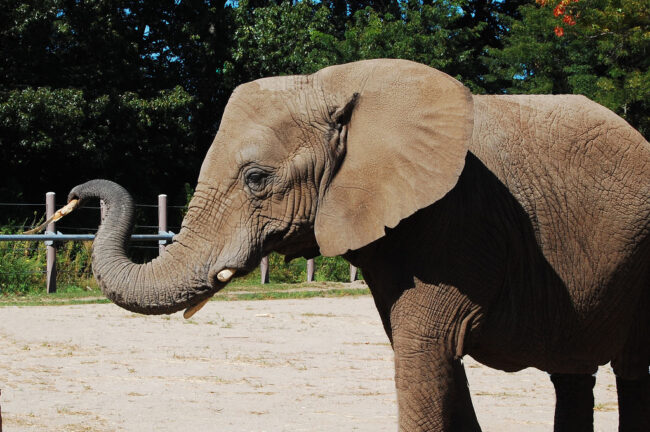The effects of ivory poaching on elephants is a topic which has lingered for decades, and yet the number of African elephants being born tuskless continues to increase. Researchers have said that the tuskless gene is being passed down to the daughters of tuskless mothers due to the severely disproportionate slaughter of tusked animals1.
Joyce Poole, who has a PhD in elephant behaviour from Cambridge University, has been tracking developments in African elephants for over 30 years. She told The Times that she has observed a direct correlation with the percentage of females being born tuskless and poaching intensity in some of the herds she monitored. One of the most extreme examples is demonstrated by the elephants of Addo Elephant National Park in South Africa: 98 percent of female elephants there have no tusks, which starkly contrasts with the usual percentage of 2 to 6 percent of females in a herd2.
In 2008, scientists found that even among elephants that remained tusked, the tusks were smaller than in elephants’ a century before – roughly half their previous size3. This is troubling as tusks have very important functions: they are used for digging for food and water as well as self-defence and sexual display4.
According to National Geographic most African countries don’t have the resources to fight poachers and there is a large demand for the product in Asia, which encourages the trade 5. Almost a third of Africa’s elephants have been illegally slaughtered by poachers in the past ten years to meet demand for ivory in Asia. About 144,000 elephants were killed from 2007 to 2014 and the species faces extinction in some areas6. As a consequence of these types of events, we have a clear example of how human behaviour can have profound effects on species, demonstrating that the extinction of a species is not its only long-term threat.
References
- http://www.independent.co.uk/news/elephants-africa-tusks-ivory-poaching-born-without-a7440706.html
- http://www.thetimes.co.uk/article/108a5416-b328-11e6-8513-587a14457823
- http://www.independent.co.uk/news/elephants-africa-tusks-ivory-poaching-born-without-a7440706.html
- http://news.bbc.co.uk/1/hi/world/africa/180301.stm
- http://news.nationalgeographic.com/2015/08/150812-elephant-ivory-demand-wildlife-trafficking-china-world/
- http://www.independent.co.uk/news/elephants-africa-tusks-ivory-poaching-born-without-a7440706.html

